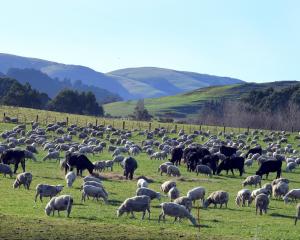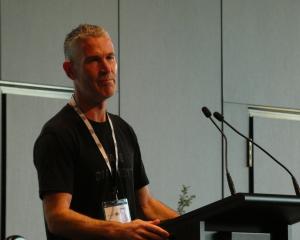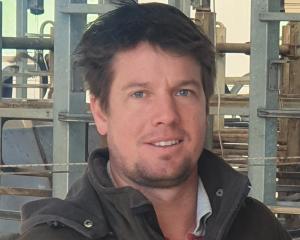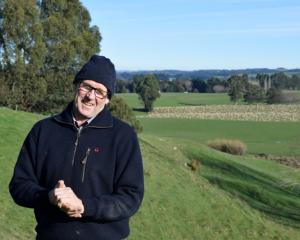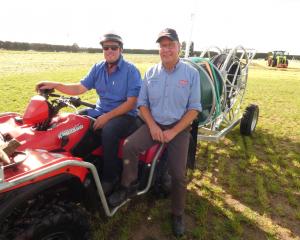
Romahapa Primary School, located about halfway between Balclutha and Ōwaka, has three classrooms and 64 pupils.
Principal Deborah Keach said the school’s board identified a 2ha paddock at the school which could be used to teach pupils about agriculture.
An aim at the school was to foster "an innovative curriculum which extends outside the classroom", Mrs Keach said.
Despite the school being rural, most of the pupils had limited experience of how a farm operated.
Local sheep, beef and deer farmer Olivia Willocks offered to lead a programme to teach children about farming.
Ms Willocks said farming provided a range of learning opportunities including accounting, maths and science.
"All those boring subjects the pupils don’t like have a real-life application out here."
Farmer Dan Lochhead initially put some cattle in the paddock to graze the rank grass and then, earlier this year when better pasture was available, Ms Willocks donated 10 store lambs.
The pupils drenched the lambs on arrival and fattened them up to be sold as prime lambs at Balclutha Saleyards earlier this month. Only nine lambs ended up being offered, because one lamb escaped to the neighbours on sale day.
All sold for $140 each.
The children then crunched the numbers to work out how many store lambs they could buy.
Year 8 pupil Lachlan McKenzie took on the bidding duties and bought 19 store lambs for $66 each.

"We are learning a lot about dry matter," he said.
Ms Willocks said the pupils had drenched, dipped and marked the new flock and were very keen.
Resolution gave the school a free subscription to its farm management app to map the paddock, record animal health inputs and enable Ms Willocks to give pupils instructions remotely.
Ms Willocks said some of the fences required maintenance. She hoped a local fencing contractor would provide a service and a learning opportunity.
She also hoped a local business would provide some infrastructure, such as water troughs.
"Hopefully we can get more of the community involved so it spreads the load a bit."
She thanked Rural Livestock agent Mark Sheppard and PGG Wrightson agent Craig Dempster for their help at the saleyards.
The plan was to fatten the store lambs over winter and sell them in the spring. Proceeds from that sale would then be used to buy some ewes with lambs at foot.
The children would dictate how the programme evolved, Ms Willocks said.
"Some want alpacas and others want chickens."
Any livestock introduced needed to earn money for the school.
"It is nice for the kids to be able to do something that is going to generate some income and support their school," she said.




